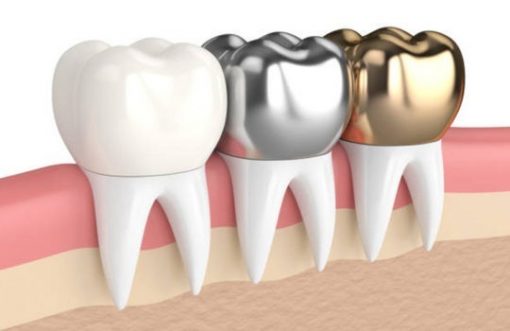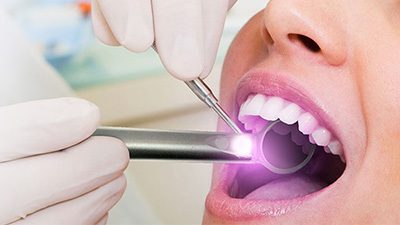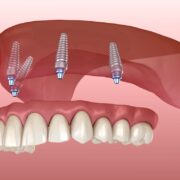Dental crowns are also known as caps or bridges. They are a type of restorative dental procedure used to repair or restore damaged teeth. When a tooth is structurally compromised beyond simple filling, a dentist may recommend placing a dental crown to support and protect the remaining structure of the tooth. Crowns can be made from various materials like porcelain, gold alloy and even plastic. The type of crown you receive depends on your individual needs and the state of your natural teeth. Before moving forward with any treatment plan, it’s important to understand what makes you a good candidate for dental crowns. If you have natural teeth that are not yet in bad condition, then getting an early intervention is recommended. Here’s why!
Dental Crown for damaged tooth that’s beyond repair.
If a tooth has been severely damaged due to decay or an accident, a crown can completely restore its structure. Unlike fillings, which stop the spread of damage, crowns completely cover and protect the remaining tooth structure. When a tooth is severely damaged, a dentist may recommend removing the tooth and replacing it with an implant or a bridge. Dental crowns are a viable alternative to these procedures. A crown is placed over the remaining tooth structure to protect it from further damage and restore its function.

Deep decay and inflammation in your natural teeth.
If there is decay and inflammation in one or more of your teeth, a dentist will recommend removing the decayed portions. If the remaining structure of those teeth is too weak for a filling, a crown is the best option. Decayed teeth are fragile. Without a crown, they could break apart completely and need extraction. Crowns are used to restore the integrity of decayed teeth and avoid the need for a more invasive procedure like root canals. Crowns also help protect healthy teeth from decay. They can prevent microorganisms from spreading to other teeth and causing more damage.
Dental Crown if you have a congenital defect.
Some people are born without teeth, or with teeth that are malformed. Other conditions like tooth decay, injury, or disease can also cause teeth to be malformed. If you have a tooth that is malformed or congenitally missing, you can get a dental crown. Crowns are recommended for people with missing teeth or malformed teeth. They can restore the appearance of the tooth and improve chewing ability. Dentures can be difficult to clean and maintain, and are not a viable option for everyone. A dental crown can be put on top of the roots of the teeth, restoring their strength and function.
Dental crowns help relieve pain caused by damaged teeth.
Dental decay and injury can lead to a condition known as dental hypersensitivity. This occurs when the nerve in your teeth is exposed to the environment, and it causes pain when you eat certain foods. A common treatment for dental hypersensitivity is to place a dental crown on the tooth. This will cover the nerves, relieving you of pain. If you have an exposed root in a tooth, a crown can protect the root from further decay. This can also help relieve pain as well.

Dental crown procedure and its benefits.
Many dental crown procedures are completed in one single visit to the dentist. In some cases, multiple appointments may be necessary to achieve the best results. Once the procedure is complete, you’ll be able to eat, drink and speak normally. The most common way to attach a dental crown is with a cement.
A hardened material is put on the tooth, and the crown is pressed into it. This is the most invasive procedure and can cause pain and sensitivity. Crowns can also be permanently affixed with special adhesives that only attach to the crown, not your gums. These are less invasive and cause less discomfort.
Finding a trusted provider to perform the procedure.
If you’re interested in getting dental crowns, it’s important to find a dentist who is comfortable and skilled in performing the procedure. Crowns are more involved and require a lot of precision. Since crowns last for many years, it’s important to find a dentist you can trust will provide you with quality services. Ask your friends and family for recommendations, and search online for reviews.
Conclusion
Dental crowns are a wonderful way to restore damaged teeth, or prevent the need for more invasive procedures like root canals. They can also be used to replace missing teeth, or protect teeth that are likely to break due to stress. It’s important to understand what makes you a good candidate for dental crowns. If you have natural teeth that are not yet in bad condition but will need protection in the future due to cracks or gaps that could lead to damage, then getting an early intervention is recommended.






